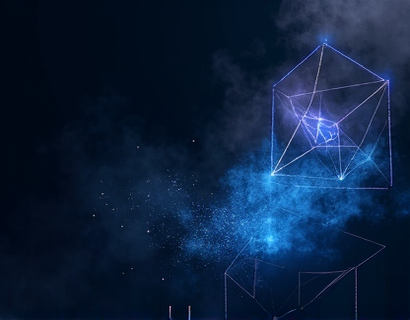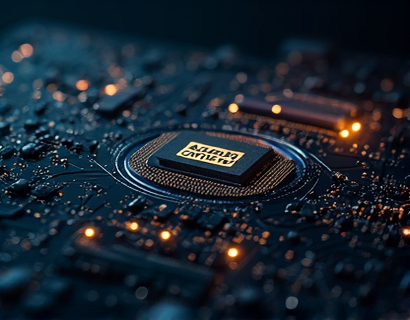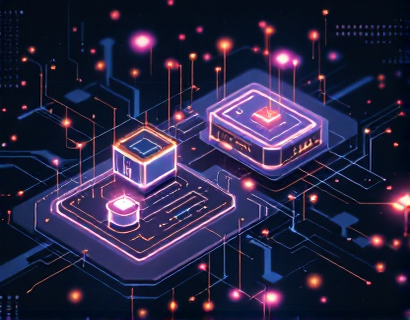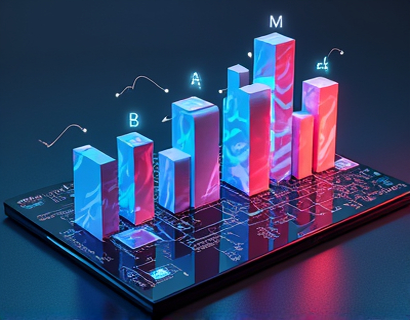Blockchain Oracle Management: Elevating Decentralized Applications with Advanced Data Integration and Smart Contract Solutions
In the rapidly evolving landscape of blockchain technology, the role of oracle management has become increasingly pivotal for the development and operation of decentralized applications (DApps). Oracle management involves the integration of external data sources into blockchain networks, enabling DApps to access real-time information and interact with off-chain systems seamlessly. This article delves into the transformative software solutions that are redefining oracle management, focusing on advanced data integration and smart contract capabilities. By optimizing these aspects, the platform discussed herein ensures secure and reliable interactions within DApps, unlocking the full potential of blockchain technology.
The foundation of any decentralized application lies in its ability to interact with both on-chain and off-chain data sources. Traditionally, this interaction has been a bottleneck due to the complexity and risks associated with data integration. Oracles play a crucial role in bridging this gap by providing a reliable channel for data to flow between the blockchain and external systems. However, the conventional oracle models often suffer from issues such as single points of failure, lack of transparency, and limited scalability. These challenges hinder the growth and adoption of DApps, making the need for advanced oracle management solutions more pressing than ever.
Advanced oracle management platforms address these challenges by introducing innovative software solutions that streamline data integration and enhance smart contract functionality. These platforms leverage cutting-edge technologies such as machine learning, distributed systems, and cryptographic protocols to create a robust and efficient oracle ecosystem. By doing so, they ensure that DApps can access accurate, timely, and secure data from various sources, thereby improving their overall performance and user trust.
Key Features of Advanced Oracle Management Solutions
One of the primary features of advanced oracle management solutions is their ability to aggregate data from multiple sources. This multi-source data aggregation ensures that DApps have access to a comprehensive and diverse set of information, reducing the risk of data bias and increasing the reliability of the data fed into smart contracts. For instance, a financial DApp requiring real-time currency exchange rates can benefit from an oracle that pulls data from multiple exchange platforms, providing a more accurate and up-to-date rate.
Another critical aspect is the implementation of decentralized oracle networks. Unlike traditional oracle models that rely on a single entity, decentralized oracles distribute the data sourcing and validation process across multiple nodes. This decentralization not only mitigates the risk of single points of failure but also enhances transparency and trust. Each node in the network independently verifies the data before it is fed into the blockchain, ensuring that the information is accurate and tamper-proof.
Security is paramount in the realm of blockchain technology, and advanced oracle management solutions prioritize this aspect through robust cryptographic mechanisms. These solutions employ techniques such as zero-knowledge proofs and homomorphic encryption to protect sensitive data during transmission and storage. By ensuring that data remains confidential and intact, these mechanisms build a strong foundation for secure data integration.
Enhancing Smart Contract Capabilities
Smart contracts are the backbone of DApps, automating and enforcing agreements without the need for intermediaries. However, their effectiveness is heavily dependent on the quality and reliability of the data they receive from oracles. Advanced oracle management solutions significantly enhance smart contract capabilities by providing high-quality, real-time data inputs. This enables smart contracts to execute more complex and dynamic operations, opening up new possibilities for decentralized applications.
For example, in the context of decentralized finance (DeFi), smart contracts can utilize real-time market data to execute trades, manage risk, and optimize portfolios. The accuracy and timeliness of this data, ensured by advanced oracle management, are crucial for the success of these financial operations. Similarly, in supply chain management, smart contracts can track the movement of goods in real-time, ensuring transparency and efficiency throughout the process.
Moreover, advanced oracle management platforms often include features that facilitate the creation and deployment of more sophisticated smart contracts. These features may include built-in data validation rules, automated error handling, and dynamic parameter adjustments. By providing developers with these tools, the platforms empower them to build more resilient and intelligent DApps.
Real-World Applications and Use Cases
The versatility of advanced oracle management solutions is evident in their wide range of real-world applications. In the gaming industry, DApps can use oracles to fetch live scores, player statistics, and other dynamic data, enhancing the gaming experience and ensuring fair play. In the realm of IoT, decentralized applications can leverage oracles to collect and process data from various sensors and devices, enabling smart home automation and industrial monitoring systems.
Another significant application is in the insurance sector, where oracles can provide real-time data on events such as natural disasters or accidents. This data can trigger smart contracts to automatically process claims, reducing fraud and speeding up the claims process. In the healthcare domain, oracles can integrate patient data from wearable devices and medical records, enabling decentralized health management and personalized medicine solutions.
These use cases demonstrate the transformative potential of advanced oracle management solutions in various industries. By providing reliable and secure data integration, these solutions pave the way for innovative DApps that can revolutionize traditional business models and create new opportunities.
Challenges and Future Directions
Despite the significant advancements in oracle management, several challenges remain. One of the primary challenges is the scalability of decentralized oracle networks. As the number of DApps and the volume of data increase, ensuring that the network can handle the load without compromising performance is crucial. Solutions are being explored, such as layer 2 protocols and sharding, to enhance the scalability of oracle networks.
Another challenge is the interoperability between different blockchain platforms. Oracle management solutions need to support multiple blockchains and protocols to facilitate seamless data integration across diverse ecosystems. Standardization efforts and cross-chain communication protocols are essential to address this issue.
Looking ahead, the future of oracle management is promising. The integration of artificial intelligence and machine learning can further optimize data processing and validation, making oracle networks more intelligent and adaptive. Additionally, the development of more user-friendly tools and platforms will lower the barrier to entry for developers, fostering greater innovation and adoption in the blockchain space.
In conclusion, advanced oracle management solutions are revolutionizing the way decentralized applications interact with external data sources. By addressing the key challenges and leveraging cutting-edge technologies, these solutions enhance smart contract capabilities and ensure secure, reliable data integration. As the blockchain ecosystem continues to evolve, the role of oracle management will become increasingly vital, driving the adoption and success of DApps across various industries.










































